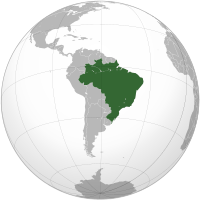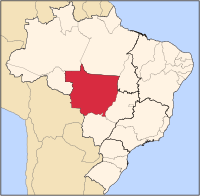Wednesday night, I will travel to Brazil with a group of American farmers, environmental advocates, academics and journalists to explore how biofuels policies here and in Brazil are influencing land-use change in Brazil. The trip, organized by the Institute for Agriculture and Trade Policy, will take us to the Pantanal wetlands, one of the world’s most biodiverse and carbon-rich landscapes and a expanding agricultural region. There we will learn about the local ecology and speak with Brazilians farmers, academics and conservations about the threats these lands face from agriculture expansion.

I cannot imagine preserving Brazil’s rich ecosystems without immediately considering the immense Amazonian rainforest. But Brazil’s Pantanal wetlands are an equally valuable natural treasure and an internationally recognized UNESCO World Heritage site. The region is known for its extraordinary diversity of plants and animals, with over 650 species of birds and 400 species of fish. Dense populations of globally threatened jaguar, marsh deer, giant otter and hyacinth macaw can all be found in the Pantanal’s river corridors, seasonal grassland, freshwater lakes and open gallery forest.
I hope to document a tiny fraction of this rich biodiversity on film and video and post it here. But my larger goal is to better understand and help illuminate the connection between our own biofuels policies, Brazil’s biofuels and agricultural policies, and these precious wild places thousands of miles away.
 Here at NRDC, we’ve written extensively about biofuels—their promise if done right and their dangers if done wrong. We’ve focused much of our attention on ending subsidies for the most environmentally harmful biofuels, such as ethanol made from corn.
Here at NRDC, we’ve written extensively about biofuels—their promise if done right and their dangers if done wrong. We’ve focused much of our attention on ending subsidies for the most environmentally harmful biofuels, such as ethanol made from corn.
Not only does corn ethanol create more global warming pollution than the gasoline it replaces, but it raises global grain prices by diverting a huge share of our annual corn crop to fuel production—nearly 40 percent and growing!— with devastating consequences for the world’s most vulnerable communities. This also increases pressure to convert our last remaining wild landscapes, like the Pantanal, into agricultural lands to address the unmet demand for food and animal feed.
Recent food riots around the world have signaled a second global food crisis in just three years and many journalists have freshly addressed soaring food prices and the role biofuels mandates in the U.S. and other industrialized countries are playing in pushing up the price of grains. [This recent Wall Street Journal article is just one example.] Other factors like population growth, increasing demand for meat, rising oil prices and agricultural devastation caused by extreme weather events—an intensifying consequence of a changing climate—further complicate the web of policy and market dynamics at play.
These issues can seem remote and abstract to us here in the United States. I hope this trip will allow me to view some of the impacts of our policies firsthand, understand a bit of the local economic development imperative, and speak directly with the people whose lives and livelihoods place them at the center of these complex issues.
How does a U.S. farmer in the Midwest decide what he’s going to plant and how much? With corn prices expected to average roughly $6.25 a bushel this year, is there anything more profitable to do with his land than grow corn? How have crop failures in other parts of the world affected his profits? What about rising oil prices?
What connects that Midwest farmer to a Brazilian farmer planting soybeans in recently drained acres of Pantanal wetland? How does that Brazilian farmer respond to increased demand for soy this year? What’s the role of large landowners in the Pantanal? What’s role of subsistence farmers?
These are the questions I will be asking during my time in Brazil and reflecting upon here. I hope that trying to capture the perspectives of the people I meet along the way will be both interesting and informative, so please stay tuned!
Nathanael Greene coordinates renewable energy work at the Natural Resource Defense Council (NRDC). He is travelling on an IATP-led delegation to Brazil to study agriculture, biofuels and land use. IATP is reposting views from others on the trip. This blog first appeared on NRDC's Switchboard blog.
